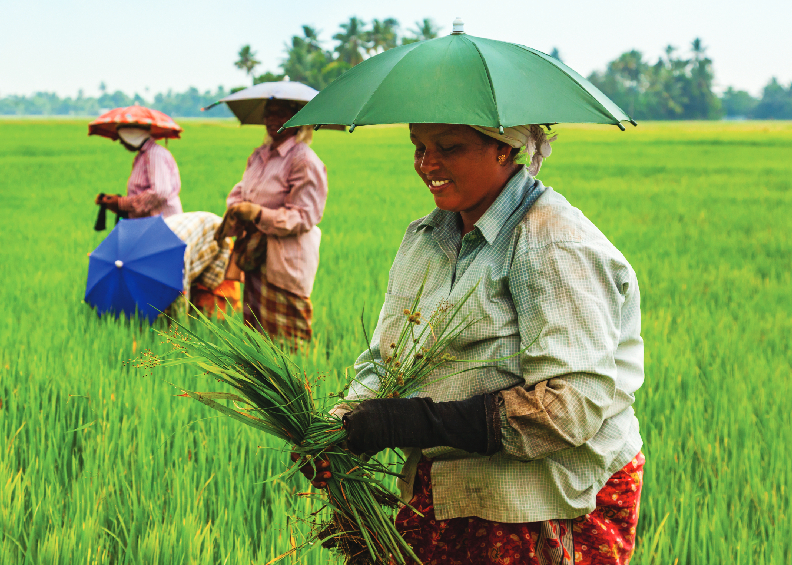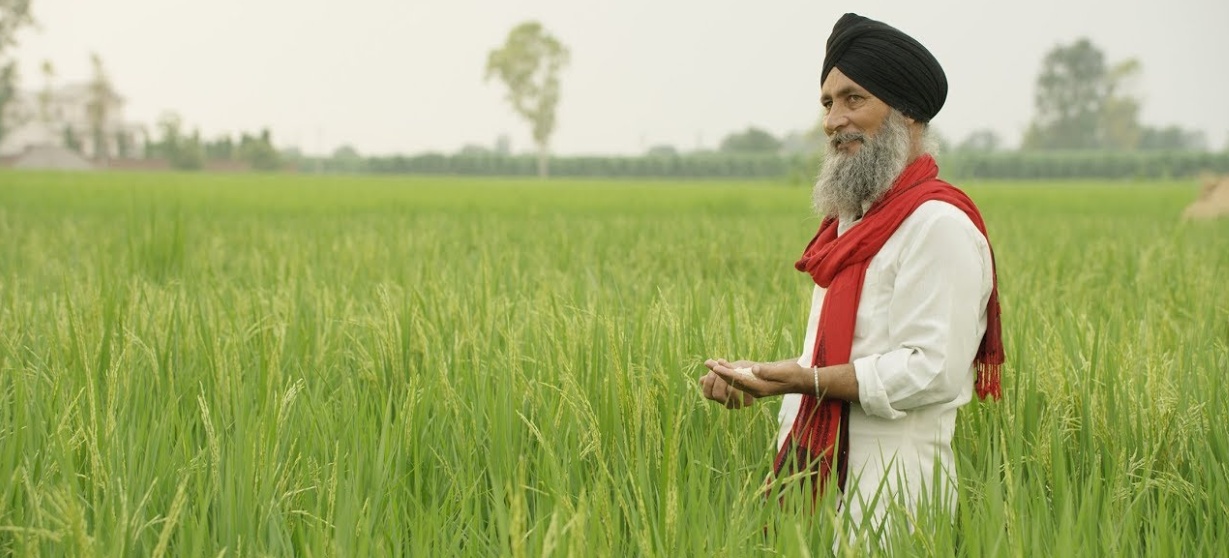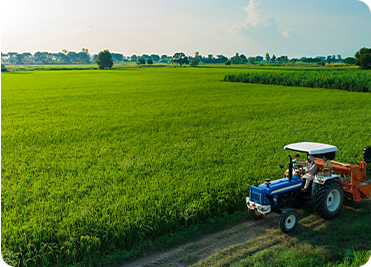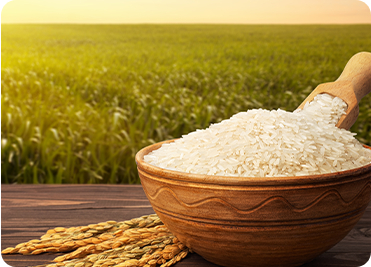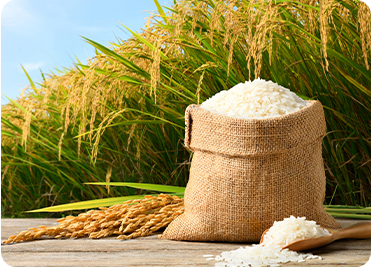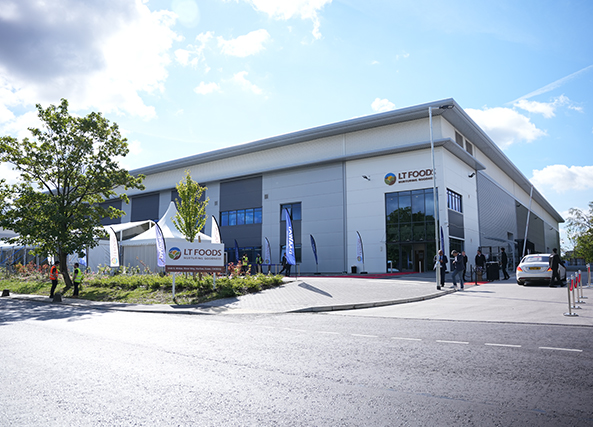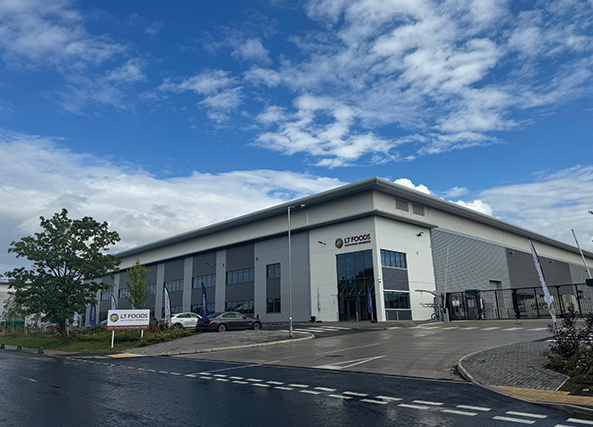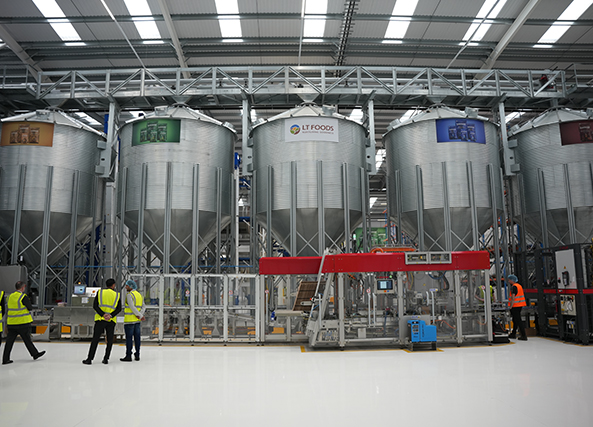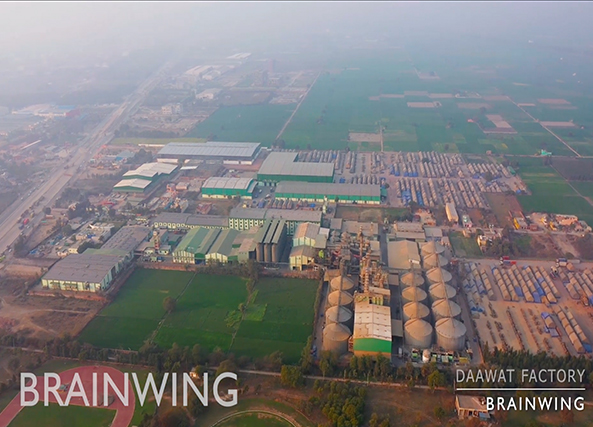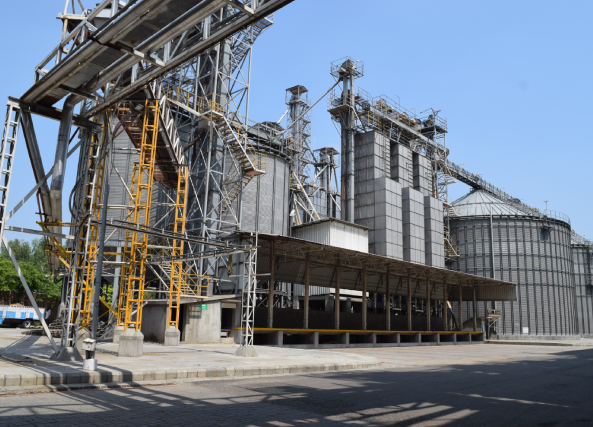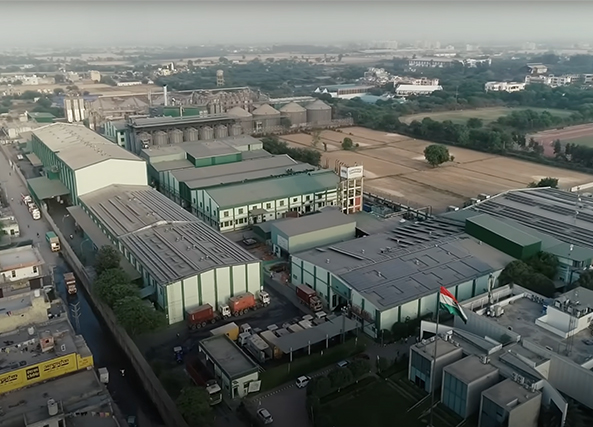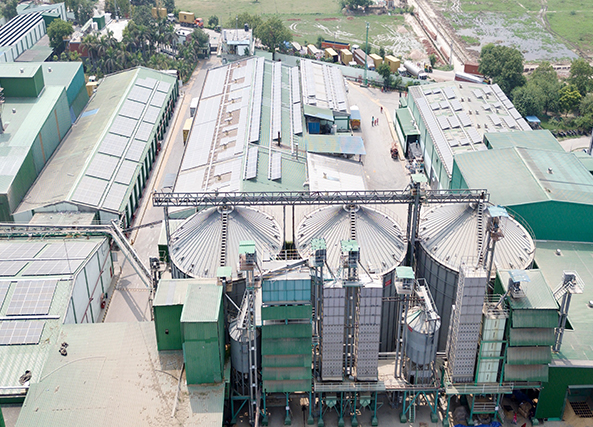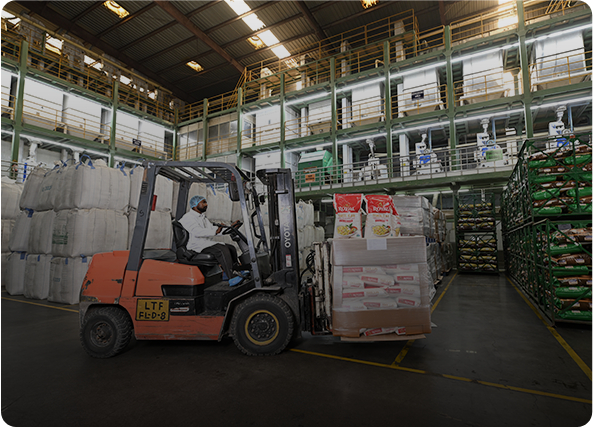Rice is more than just a staple food—it's the primary source of nourishment for over half of the world's population and a cornerstone of food security in many developing nations. However, traditional rice production methods pose significant environmental challenges, making the transition to sustainable rice cultivation, including for aromatic rice one of the most crucial agricultural imperatives of our time.
The environmental impact of conventional rice farming is substantial. Rice paddies are responsible for approximately 10% of global methane emissions, a greenhouse gas significantly more potent than carbon dioxide. Traditional flooding methods in rice cultivation not only contribute to these emissions but also consume approximately one-third of the world's freshwater used in agriculture.
LT Foods is the first company with the UN certificate of SRP.
The economic benefits of sustainable rice production are equally compelling. Farmers who adopt sustainable practices often see reduced input costs through more efficient use of water, fertilizers, and pesticides. These savings are particularly crucial for smallholder farmers in developing countries especially India, who constitute the majority of rice producers worldwide. Furthermore, sustainably produced rice often commands premium prices in the market, providing additional income opportunities for LT Foods agri program associated farmers. In order to do this, two imperatives to be achieved are product quality compliance, especially in terms of agro-chemical residue control and complete seed to consumer traceability of produce
Farmer Support Initiatives
LTF is aware that a purely transactional relationship with its farmers is inadequate. Also farmers need to see investments and concomitant benefits aside from sustainability accrue to them.
Hence via its programme LTF Farm Connect the company endeavours to ensure that the participants in the program enjoy benefits that are either unique or available only at high cost to those not part of the program. All these measures serve to emphasise how much LTF values its relationship with its farmers and how much it is investing in ensuring the delivery SRP benefits to the farmer field level. Some of these special advantages are-
- Access to high quality seed at competitive cost and a bio input based seed treatment regimen that eliminates chemical intervention and improves germination and sapling vigour.
- Mat nursery production of a range of paddy varieties are available on request at subsidised cost too. This allows the farmer to select an off the shelf solution, rather than invest in seed and preparation of his own nursery.
- Mechanised and semi mechanized transplanting machines that eliminate the drudgery and reduce high labour involvement and costs associated with manual transplanting and improve crop health and yield.
- Use of kono weeders to reduce by > 80% the cost of manual weeding operations.
- Spray of agro-chemicals by drones recently introduced, rather than by manual means to improve efficiency, save time and water and enhance human safety.
- Access to the company’s package of practices which is based on proprietorial R&D efforts including locally based Integrated Nutrition Management Trials (INM) and an Integrated Pest Management Program(IPM). This offers farmers reduced production costs and improved profitability.
- New equipment being trialed now and commercially introduced shortly, to cut, thresh and clean paddy will both reduce costs and improve quality of our farmer’s paddy.
- All farmers are now connected to the company via an exclusive digital app launched by LTF. This app is being used to supplement information disbursement & training including SRP, allow farmers to purchase all agro inputs from vetted and leading input vendors at transparent & competitive pricing, sell their produce at harvest time to the company, purchase seed and other company specific inputs such as agri services etc. The app also records farmer costs along with his other crop production particulars, all available at the click of a button. Importantly, the company’s package of practices and list of proscribed agro-chemicals specific for his production system are available 24/7 as a reminder of how important residue compliant paddy production is to all stakeholders in this program. The app assists in maintaining product traceability too.
- Procurement of paddy from the farmer’s field or storage location by the company’s procurement and purchase teams allows the farmers in this program to save costs of taking their produce to a public market yard (mandi). The convenience of transacting from the comfort of their homes and to receive payment straight into their bank accounts are benefits that LTF program farmers much appreciate.
- Farmer training & awareness creation programs on continuous both in house and vis reputed partners such as the Indian Council for Agriculture Research (ICAR)
The role of SRP in our farm connect program
Sustainable rice production also plays a vital role in preserving biodiversity and ecosystem health. Traditional intensive rice farming often relies heavily on chemical pesticides and fertilizers, which can harm beneficial insects, contaminate water sources, and degrade soil quality. SRP practices, help maintain ecosystem balance while protecting vital pollinators and natural pest predators.
Climate resilience is another crucial aspect of sustainable rice production. As climate change brings more frequent extreme weather events and unpredictable rainfall patterns, sustainable farming methods help build resilience through improved variety selection, soil health, water management, and cropping diversity. These practices help rice crops better withstand droughts, floods, and other climate-related stresses.
The future of this partnership with SRP
Looking ahead, the importance of SRP rice production will only grow as the world faces increasing population pressure and climate challenges. By 2050, global rice demand is expected to increase by 25%, while available agricultural land and water resources continue to diminish. Meeting this demand while reducing environmental impact will require widespread adoption of sustainable practices, supported by policy initiatives, research investment, and market incentives. SRP adoption has helped LT Foods assume a leadership role in these respects and the company has now achieved the highest rating in sustainability in SRP Level 3 certification.
The transition to sustainable rice production represents not just an environmental imperative but a social and economic necessity. It offers a path to ensuring food security, protecting natural resources, supporting farmer livelihoods, and building climate resilience. As LT Foods confronts these many challenges, SRP rice production stands as a critical component of our agricultural future.
Production Video
Production Gallery
Production Plants
Phone
 USA
USA Eur
Eur ME
ME UK
UK






